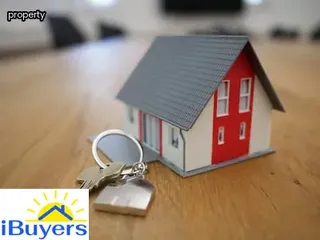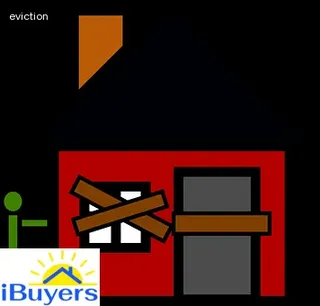Squatting is the act of occupying a space or property without permission from the owner or legal authority. In Georgia real estate law, squatters can claim ownership of a space if they can prove they have been living there in some capacity for an extended period of time.
It's important to understand the implications of squatting in Georgia so that you can be aware of your rights as a property owner and potential squatter. Squatters may have certain protections under Georgia law, such as the right to remain on the property until their claim is legally challenged.
If their claim is successful, they may even receive title to the property after certain conditions are met. It's important to know that while squatters may have certain rights and protection under Georgia law, they still must abide by all applicable laws and regulations when it comes to real estate transactions in order to protect themselves from any potential fines or eviction notices.
Additionally, squatters do not always have access to all the same services or amenities as traditional tenants or homeowners, so it's important for them to research their rights thoroughly before deciding whether or not squatting is an option for them.

A squatter is someone who occupies land or a building without the legal right to do so. Squatting, also referred to as adverse possession, is legally defined as the possession of land or property without the explicit permission of its rightful owner and with the intent to establish ownership rights.
In Georgia, squatters may be able to obtain legal title to the property they are occupying through a process known as statutory adverse possession. This process requires that the squatter demonstrate continuous and exclusive occupancy over an extended period of time (seven years for real estate) in order to gain legal title.
The squatter must also show that they have made proper use of the property and have paid taxes on it during this time period. Furthermore, squatters must comply with all local zoning laws and make any necessary improvements or repairs to maintain their claim on the property.
Although it is difficult for squatters to gain legal title in Georgia, if successful, they will be able to enjoy all of the same rights and privileges available to other landowners in the state.
Adverse possession and color of title claims are two common legal grounds for uncovering squatters' rights in Georgia real estate law. Adverse possession is a principle that allows individuals to gain legal title to property they have been occupying without permission from the original owner by meeting certain requirements.
This includes using the property continuously, openly, and exclusively for a set period of time. Color of title claims refer to when an individual has an invalid deed or other form of documentation that appears to give them legal title to the property in question.
In Georgia, color of title claims require proof that occupancy was in good faith with reasonable belief that the deed was valid and continuous occupation over seven years. These two principles are important tools for understanding squatters' rights in Georgia real estate law as they can provide individuals with legal ownership of properties if certain conditions are met.

When a squatter takes up residence on your property in Georgia, you may be uncertain of how to address the situation. In general, the law protects squatters from eviction without due process and provides them with limited rights as tenants.
As a property owner, it is important to familiarize yourself with Georgia real estate laws to understand your rights and obligations when it comes to dealing with a squatter. If a squatter is occupying your property without permission, there are steps you can take to protect yourself and reclaim your land.
The first step is to contact an attorney experienced in Georgia real estate law who can help you identify the best course of action for your specific situation. You may be able to have the police remove the squatter or possibly even pursue legal action against them if they refuse to leave.
Additionally, you may need to obtain a court order that requires the squatter to vacate in order for them to be legally removed from your property. It is also possible that the squatter has certain rights as a tenant on your property under Georgia real estate law depending on how long they have been living there, so it is important that you work with an experienced lawyer who can advise you on how best to proceed given these potential considerations.
If you have squatters on your property in Georgia, it is important to understand the legal rights given to them by state law and how to remove them legally. In Georgia, a squatter is someone who enters onto another's property without permission or any legal right and lives there without paying rent.
In order to evict a squatter from your property, you must first provide written notice for the person to leave within seven days. If the squatter does not leave after this time period, then you can file a “Detainer Warrant” with the local magistrate court.
This will allow an officer of the court to deliver a summons to the squatter and order their removal. You may also be able to pursue a civil lawsuit against the squatter if they do not comply with the eviction notice.
Additionally, in some cases, it may be possible to get criminal charges filed against a squatter who refuses to comply with an eviction notice. It is essential that you are aware of all of your rights as a property owner when dealing with squatters and that you follow proper procedures in order for any action taken against them to be considered valid under Georgia real estate law.

When it comes to tenants at sufferance in Georgia real estate law, the complexities can be difficult to understand. Squatters' rights are a major factor in this equation, as many squatters are able to remain on property for extended periods of time without paying rent or having a lease agreement.
To complicate matters further, some of those individuals may even have valid claims to the property if they have been living there for an extended time period. It is important for all parties involved in any real estate dispute involving tenants at sufferance or squatters' rights to be aware of the different laws and regulations that apply in these cases.
Though Georgia law protects property owners from unfair occupation of their land, it also requires them to follow certain procedures when evicting tenants at sufferance or dealing with squatters who are claiming legal ownership. It is essential to seek professional legal advice when navigating these complex issues, as failure to do so could lead to costly consequences.
Having knowledge of your rights as a property owner in Georgia is essential to protecting your land from potential squatters. It is important to explore the legal options available to you in order to protect yourself from any possible ramifications.
Squatters’ rights are based on the law of adverse possession, which allows people to gain title to a property that they have been occupying for a certain period of time. However, even though it may be difficult for squatters to gain title in Georgia, it is still important for property owners to understand their legal rights and responsibilities when it comes to dealing with these individuals.
In addition, there are specific steps landowners can take such as filing an action with the court or using the service of local law enforcement if necessary. Knowing what actions you can legally take and understanding the laws surrounding squatter’s rights can help give you peace of mind in knowing that your property is secure and protected from unwanted trespassers.

Georgians who are looking for an affordable home and car insurance option must first understand their rights when it comes to real estate law in the state. Georgia has specific laws that protect squatters, or those who occupy a property without permission (or legal title) from the owner, and they can include tenants who have overstayed their rental agreement or people living in a property that is not legally theirs.
Squatters may be entitled to certain rights such as possession of the property, compensation for improvements made to the property, or even damages if they are evicted by force. As a result, Georgians should consult with a qualified attorney to ensure that any insurance policy taken out covers these potential liabilities.
Additionally, researching reputable insurance companies and exploring available discounts can help Georgians find the most affordable coverage possible.
When dealing with squatters in Georgia real estate law, it is important to assess the potential risks associated with not taking action. Squatters can cause considerable damage both financially and legally if they are allowed to remain on the property without permission.
The longer a squatter remains on the property, the greater their legal rights become as they can establish adverse possession. This means that if action is not taken quickly to remove them, they could gain title of the property after a certain amount of time has passed.
Additionally, the owner of the property may be liable for any damages caused by squatters during their tenancy and will also have to pay for court costs associated with evicting them from the property. Finally, allowing squatters to stay on a property can create negative effects for neighbors or other tenants due to decreased security and sanitation standards.
Taking action against squatters is essential in order to minimize potential risks related to Georgia real estate law.

Adverse possession is a part of Georgia real estate law that allows squatters to gain legal title to a property. To be successful in claiming the property, the squatter must meet certain criteria that are outlined by the state.
In Georgia, a squatter must prove they have been in open and notorious possession of the land for at least seven years with an exclusive claim of ownership. Additionally, they must have been paying all taxes on the property during this time period.
Furthermore, a squatter must show that their possession was done with hostile intent and without permission from the true owner or other legal authority. A squatter should also be aware that if a true owner has made any improvements on their land since it was taken over by adverse possession, then those improvements must be compensated before the transfer of legal title is finalized.
With these legal parameters in mind, understanding squatters' rights in Georgia real estate law can help clear up any confusion surrounding adverse possession and give potential claimants greater insight into what is needed to successfully claim title to a piece of property.
In Georgia, squatting is a complicated topic due to the variety of situations it can involve. Generally, squatting occurs when someone takes up residence in an abandoned or foreclosed property without permission from the owner or having any legal right to do so.
Squatters may also take possession of uninhabited land or buildings without a deed or title. Understanding how laws in the state relate to this behavior is essential for those wishing to pursue their rights as a squatter.
Different types of squatting situations may vary depending on whether the property is privately owned or part of public land, and if it is being occupied by one person or multiple people. Additionally, different laws apply based on how long the structure has been left unoccupied, who owns it, and if anyone else claims ownership over the property.
In some cases, Homesteading laws may be applicable which allow individuals to claim ownership over abandoned property after living there for a certain length of time. It's important for anyone interested in pursuing their rights as a squatter in Georgia to become familiar with relevant laws and regulations before taking action.

When it comes to uncovering a squatter’s rights in Georgia Real Estate law, examining the legality and potential dangers of color of title claims is essential. Color of title can be defined as the possession of property by someone who does not have legal ownership rights.
In some states, like Georgia, those who have been in continuous possession of land for a certain period of time may be able to establish legal ownership through their actions. This process is called adverse possession, or squatting.
However, this type of claim brings with it various risks that must be taken into consideration. For example, there are no guarantees made by the state regarding the validity of these claims, meaning there is a risk that an owner could take action against the squatter for trespassing.
Additionally, even if a claim is upheld in court it may still come with restrictions on how the land can be used such as limits on building structures or limitations on agricultural use. It is important to understand all aspects before pursuing a color of title claim in order to ensure safety and legality.
In Georgia, Squatters' Rights are an area of real estate law that allows individuals to claim legal rights over a property they have occupied for a certain period of time. To successfully claim Squatters' Rights in Georgia, you must meet certain criteria and follow certain steps.
First, you must occupy the property continuously for at least seven years. The occupancy must be open, notorious, and exclusive--meaning that the occupying party is not sharing the property with anyone else or allowing anyone else on the premises.
Any improvements made to the property during this time can also help establish squatters' rights. After seven years of occupation has passed, you will need to file a Quiet Title Action with your local court clerk in order to have your rights recognized by the state.
You will also be required to provide evidence that you have met all the criteria mentioned above and have peacefully occupied the property for seven years without interruption from another party. Once this process is complete and your rights are recognized by the court, you will be legally entitled to remain on and make use of the property as if it were yours.

Squatting in Georgia is illegal, and those caught doing so may face criminal charges. Under Georgia real estate law, squatters can be charged with a misdemeanor or even a felony depending on the circumstances.
A squatter is someone who moves into an abandoned or vacant property without permission from the owner. If a squatter remains on the property for more than 30 days, they may be charged with a misdemeanor and face up to 12 months in jail.
If they damage or steal from the property, they can be charged with a felony and face up to 5 years in prison. Additionally, the penalty for squatting may be increased if it involves trespassing onto another’s land with intent to remain there without permission or if it involves fraudulently obtaining an interest in the property.
Even when squatting does not rise to the level of criminal activity, it is still illegal and can result in civil lawsuits brought by landowners seeking eviction as well as compensation for any damages done to the property. Therefore, it is important for those considering squatting in Georgia to understand their rights and potential legal consequences before taking such action.
Squatters' rights in Georgia real estate law are a complex set of regulations that can help individuals establish ownership of a piece of property.
The process is long and complicated, but knowing the shortest amount of time necessary to qualify for squatters' rights is key.
In Georgia, 10 years of continuous occupancy on the same property is generally considered enough time to establish ownership.
This means that someone living on the same property for 10 years without interruption or challenge from an owner or other interested party will be able to stake a claim to the land under certain circumstances.
Adverse possession in Georgia is a legal concept that allows an individual or entity to gain title to another's land, through open, notorious, exclusive and hostile possession for seven years. This means that if someone occupies a piece of real estate, openly notifying the public of their claim and paying any taxes associated with the property for seven years, they may be able to obtain title to the land.
Squatters' rights are based on this principle of adverse possession, offering those who are willing to take the risk with the potential opportunity to acquire title to land without needing permission from its owner. Georgia law requires all squatters to provide clear evidence of their exclusive use for at least seven years in order for them to potentially acquire legal title.
It is important for individuals seeking adverse possession in Georgia to understand both the implications and requirements of such a process before attempting it.